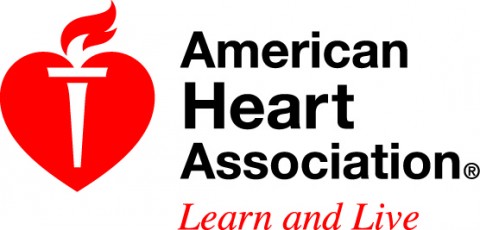Microcephaly One of Many Defects that Deserve Attention
 Nashville, TN – Until a recent outbreak of Zika virus disease was associated with babies born with microcephaly, many had not heard of the birth defect. Tennessee Department of Health data show approximately 45 to 50 cases occur in Tennessee each year.
Nashville, TN – Until a recent outbreak of Zika virus disease was associated with babies born with microcephaly, many had not heard of the birth defect. Tennessee Department of Health data show approximately 45 to 50 cases occur in Tennessee each year.
Babies with microcephaly are born with heads that are smaller than expected. This can be associated with developmental delays, intellectual disabilities, problems with hearing or vision and seizures.

While some may be linked to genetic backgrounds, many can be prevented by adopting healthy lifestyles and behaviors before and during pregnancy, including taking vitamins such as folic acid to prevent certain brain and spine defects.
To reduce the possibility of Zika-associated birth defects, the Centers for Disease Control and Prevention advises pregnant women in any trimester to consider postponing travel to areas with Zika.
CDC also recommends women trying to get pregnant and their male partners talk with their healthcare providers before traveling to areas with Zika. All travelers, male and female, should take precautions to protect themselves from mosquito bites.
“Zika virus disease has raised awareness about preventing birth defects and prompted many to become more knowledgeable about the importance of preparing for and having a healthy pregnancy,” said TDH Commissioner John Dreyzehner, MD, MPH. “Our stable advice is this: Don’t wait to start healthy behaviors until you find out you’re pregnant. Have conversations with your doctor about what you can do to make sure your body is ready for a best start for your baby. Because approximately half of all pregnancies are unplanned, this is an important conversation for any woman of child-bearing age to have with her clinician. While we strongly advocate planned pregnancies, we also emphasize planning for the unplanned, because it happens often.”
“Women can never start too early in planning for a healthy baby,” said Michael Warren, MD, MPH, TDH assistant commissioner of Family Health and Wellness. “By the time many women learn they are pregnant, much of their baby’s important development is already underway. All of our organs start to develop between four to eight weeks, and some women may not know they are pregnant until after that time. It is incredibly important for women of child-bearing age to make healthy lifestyle and behavior changes before they become pregnant, reducing the likelihood of preventable birth defects if they become pregnant.”
The Tennessee Department of Health offers these suggestions for a healthy pregnancy:
- If you are pregnant or could become pregnant, consider avoiding travel to countries currently experiencing an outbreak of Zika virus disease. The list of affected areas includes many countries in the Caribbean and South and Central America. The list changes frequently; to see the most current list, go to www.cdc.gov/zika/
- Take folic acid every day (400 micrograms daily beginning at least 30 days in advance of becoming pregnant) to help prevent birth defects of the spine and brain. A single serving of many breakfast cereals can provide the amount you need. Find a list of fortified cereals at www.cdc.gov/NCBDDD/folicacid/cereals.html
- Women with diabetes or other medical conditions that require medication should talk with their health care providers before attempting a pregnancy. Poor control of diabetes immediately before and during pregnancy can cause birth defects in the baby and pose serious health threats to the mother.
- Some medications, such as Accutane or isotretinoin used to treat acne can increase the risk of birth defects. Discuss all medications you have used with your doctor, including over-the-counter medications and any herbal or dietary supplements you may take, to be sure none would contribute to birth defects.
- Don’t be hesitant to ask your healthcare provider about whether the use of any medication during pregnancy is in the best interest of your health and the health of your baby. Some powerful drugs, including those prescribed by a clinician and those obtained illegally, can cause neonatal abstinence syndrome, NAS. This is a condition in which the baby has withdrawal symptoms after being exposed to certain substances. The kinds of medications that may cause withdrawal include opioids, which are painkillers, or benzodiazepines, which help with anxiety or sleep. Illicit drugs such as cocaine may also cause withdrawal.
- Avoid nicotine from all tobacco products and avoid alcohol.
- Achieving a healthy weight before becoming pregnant can reduce the chances of birth defects. Obese women are at higher risk of having a baby with defects of the brain or spine and some heart defects.
- Certain infections during pregnancy can cause birth defects. It’s important not to touch pet rodents and cat litter, not to drink unpasteurized milk, to cook meat thoroughly, to wash your hands often and to avoid sick people.
For more information about preventing birth defects, visit the Center of Disease Control and Prevention website at www.cdc.gov/NCBDDD/birthdefects/facts.html
About the Tennessee Department of Health
The mission of the Tennessee Department of Health is to protect, promote and improve the health and prosperity of people in Tennessee. TDH has facilities in all 95 counties and provides direct services for more than one in five Tennesseans annually as well as indirect services for everyone in the state, including emergency response to health threats, licensure of health professionals, regulation of health care facilities and inspection of food service establishments.
Learn more about TDH services and programs at www.tn.gov/health



